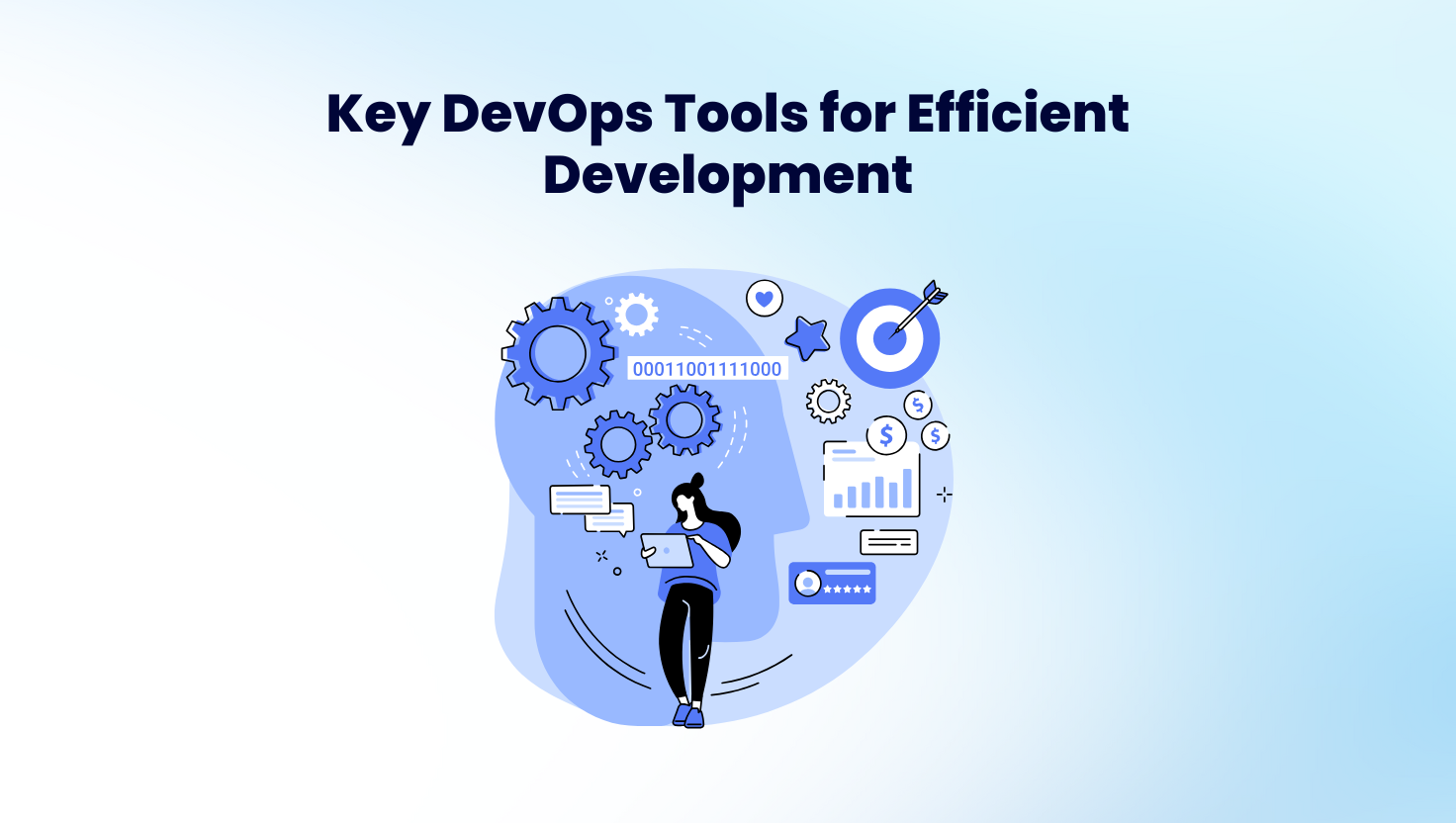
18 Mar Essential DevOps Tools for Streamlined Development
The adoption of DevOps has transformed software development and IT operations by promoting automation, collaboration, and continuous improvement. With the right tools, businesses can enhance efficiency, scalability, and reliability in their software delivery pipelines.
This article explores essential DevOps tools that help teams manage code, automate testing, monitor performance, and deploy software seamlessly.
1. Version Control Systems (VCS)
Version control systems allow developers to track changes, collaborate efficiently, and maintain code integrity. These tools help teams work on multiple versions of a project without conflicts and ensure that previous versions can be restored if needed.
Git
Git is the most widely used distributed version control system, enabling teams to:
- Track changes in the source code.
- Work collaboratively without overwriting each other’s work.
- Revert to previous versions in case of issues.
Popular Git-based platforms include:
- GitHub – A cloud-based platform for collaboration, project management, and open-source contributions.
- GitLab – An all-in-one DevOps platform with built-in CI/CD and issue tracking.
- Bitbucket – A repository hosting service integrated with Atlassian tools for enterprise solutions.
2. Continuous Integration & Continuous Deployment (CI/CD) Tools
CI/CD tools automate code integration, testing, and deployment, ensuring that new features and bug fixes are delivered quickly and reliably.
Jenkins
- An open-source automation server for building, testing, and deploying code.
- Supports thousands of plugins for extensibility.
GitLab CI/CD
- Fully integrated with GitLab repositories for seamless code integration and deployment.
- Automates software delivery with built-in security scanning.
CircleCI
- A cloud-based CI/CD tool with parallel processing capabilities for faster build times.
- Provides deep Docker and Kubernetes integration.
Travis CI
A popular CI/CD tool for open-source projects with direct integration with GitHub.3. Configuration Management Tools
Configuration management ensures that software environments remain consistent across all development, testing, and production stages.
Ansible
- Uses YAML-based scripts for simple, agentless configuration automation.
- Ideal for orchestrating cloud infrastructure and server provisioning.
Puppet
- Automates infrastructure management with a declarative approach.
- Well-suited for large-scale enterprise environments.
Chef
- Uses Ruby-based configuration scripts for defining system configurations.
- Best for organizations needing customized infrastructure automation.
4. Containerization and Orchestration Tools
Containers enhance portability, scalability, and deployment efficiency, while orchestration tools automate container management.
Docker
- Packages applications into lightweight, portable containers.
- Ensures consistent performance across different environments.
Kubernetes
- A container orchestration platform that manages, scales, and automates deployments.
- Provides features like auto-scaling, load balancing, and self-healing.
OpenShift
Built on Kubernetes, with additional enterprise-grade security and automation.5. Infrastructure as Code (IaC) Tools
IaC tools automate infrastructure provisioning and management, ensuring that environments are consistent and reproducible.
Terraform
- A declarative tool for provisioning cloud resources.
- Supports multi-cloud deployments (AWS, Azure, Google Cloud).
AWS CloudFormation
Native to AWS, enabling infrastructure deployment using JSON/YAML templates.Pulumi
Allows defining infrastructure using popular programming languages like Python and JavaScript.
6. Monitoring & Logging Tools
Monitoring tools help detect performance issues, security vulnerabilities, and system failures before they impact users.
Prometheus
- Collects real-time metrics and logs for performance monitoring.
- Seamlessly integrates with Kubernetes and cloud environments.
Grafana
A data visualization tool for creating dashboards with real-time analytics.ELK Stack (Elasticsearch, Logstash, Kibana)
- Elasticsearch – A search and analytics engine for log management.
- Logstash – A log processing pipeline.
- Kibana – A visualization tool for log analysis.
Datadog
A cloud monitoring tool that provides real-time insights into application performance.7. Security and Compliance Tools
Security tools help DevOps teams secure applications, detect vulnerabilities, and ensure compliance.
SonarQube
Scans source code for security flaws and best practices violations.Snyk
Identifies vulnerabilities in open-source dependencies and provides fixes.HashiCorp Vault
Manages secrets like API keys and database credentials.8. Collaboration & Communication Tools
Effective collaboration improves DevOps adoption and productivity across teams.
Slack
A messaging platform that integrates with CI/CD pipelines, monitoring tools, and alert systems.Microsoft Teams
Facilitates chat-based collaboration for DevOps teams.Jira
A project management tool for tracking development progress and sprint planning.Selecting the Right DevOps Tools for Your Business
The choice of DevOps tools depends on:
- Project size and complexity – Some tools work better for large-scale deployments.
- Integration needs – Ensuring compatibility with your existing cloud and software stack.
- Security compliance – Meeting industry standards and data protection requirements.
How PT. KDN Can Help with DevOps Implementation
At PT KDN, we offer customized DevOps solutions to help businesses streamline software development, automate workflows, and enhance security. Our expertise includes:
- CI/CD Pipeline Setup – Automating testing and deployment.
- Cloud Infrastructure Management – Managing AWS, Azure, and Google Cloud environments.
- Monitoring & Security – Implementing real-time monitoring and compliance tools.
- Containerization & Kubernetes – Optimizing workloads with Docker and Kubernetes.
By integrating the right DevOps tools, businesses can accelerate development cycles, reduce operational costs, and improve software reliability.


Sorry, the comment form is closed at this time.